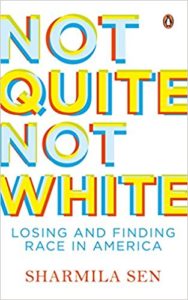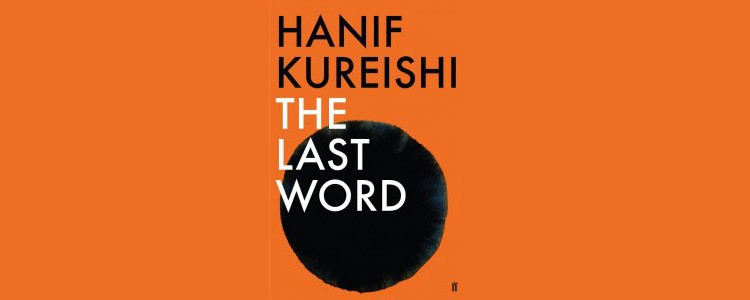Sharmila Sen “Not Quite, Not White: Losing and Finding Race in America”
 When people move they inevitably bring certain things with them, leave a few things behind, and acquire new possessions. My parents had asked me to choose what I wanted to take with me to Boston. I was allotted a single suitcase. Everything else was to be sold, given to relatives, or thrown away. This is what I chose to bring in my suitcase:
When people move they inevitably bring certain things with them, leave a few things behind, and acquire new possessions. My parents had asked me to choose what I wanted to take with me to Boston. I was allotted a single suitcase. Everything else was to be sold, given to relatives, or thrown away. This is what I chose to bring in my suitcase:
Red plastic View-Master with four reels (Disney World, Japan, Baby Animals, and Mecca)
Four Bengali books –Raj Kahini ( Royal Tales) by Abanindranath Tagore; Aam Antir Bhepu ( The Song of the Road) by Bibhutibhushan Bandhyopadhyay; Shishu ( Child), a collection of poems by Rabindranath Tagore; and gopal Bhand ( Stories of Gopal the Royal Fool)
My report cards from my old school, attesting to my grades from 1974 to 1982
My beloved collection of miniature plastic animals that came free with the purchase of Binaca brand toothpaste in India during the 1970s
A Misha commemorative pin from the 1980 Moscow Olympics
A couple of dresses made of printed cotton
A pair of gray denim pants, the closest thing I owned to the coveted American blue jeans
A pair of blue canvas shoes from Bata, the most popular shoe company in India
None of these items were going to be of much practical use, as I soon found out. The tools and weapons I needed to survive and flourish in the New World were waiting for me elsewhere. I would find them in the hallways of my new school. And on the small screen of our black-and-white TV.
Indian-born American Sharmila Sen’s memoir Not Quite Not White: Losing and Finding Race in America is an absorbing account of her trying to negotiate her way through her new life in USA while her ties were still strong with India. She was twelve years old when her parents decided to move from Calcutta to the US. Having been born in a bhadralok ( cultured and well-respected) Bengali family she took certain privileges for granted. These were mostly of respect accorded to her cultural inheritance and the family she belonged to. She was not necessarily exposed to the rough and tumble ways of existence. Whereas in America the mere shade of her skin immediately put her in a different category. Her first experience of the classrooms where segregation was not visible as students had no choice in their seating arrangements was small consolation when it came to lunch time or other breaks for then the students promptly clustered in racially segregated groups.
Not Quite Not White is fascinating while moving account of Sharmila Sen negotiating her way through a new culture. She arrived as a young girl bewildered by the customs and social rules of engagement. By social standards of acceptance she did very well for herself as a non-white immigrant, primarily by learning to smile always. She taught herself to learn the rules. Ultimately she found herself being accepted by everyone so much so she heard remarks like “I always forget you are Indian” or “But I see you as white”. Sharmila Sen was educated in the public schools of Cambridge, Massachusetts, and studied in Harvard and Yale. She taught at Harvard for a few years too. Currently, she is the executive editor-at-large at Harvard University Press. Yet her memoir brings out the painful negotiations she has learned to make on a regular basis, imbibing much of it, so as to survive.
To buy on Amazon India
2 November 2018




